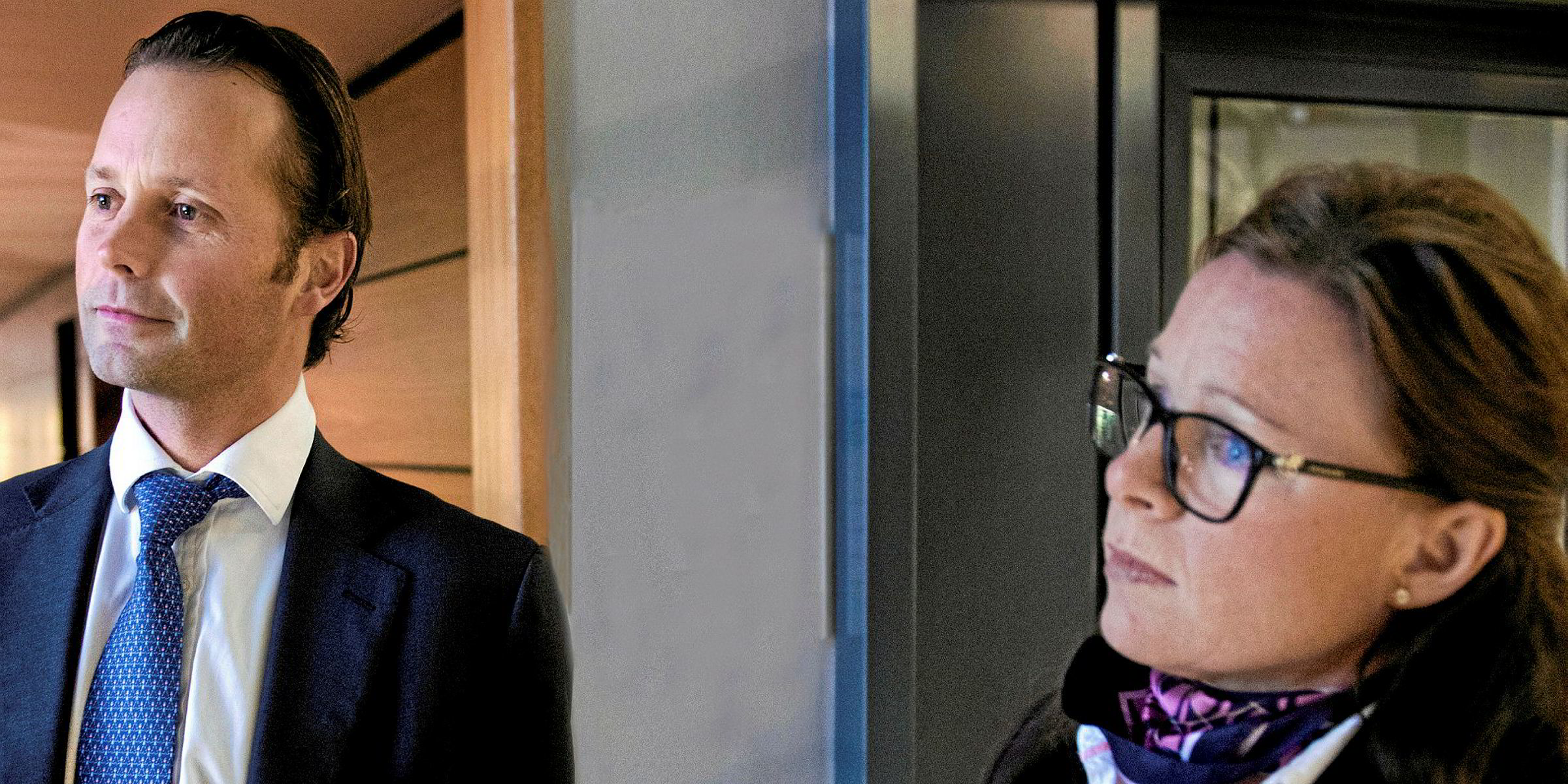Wilhelmsen’s $400m acquisition of Drew Marine Technical Solutions hangs on a US hearing, following a challenge by the federal competition watchdog, which says the deal violates anti-trust rules.
The takeover would create, among other things, the world’s largest provider of water treatment chemicals for vessels by far, severely curtailing competition and the options available to global shipowners, the Federal Trade Commission (FTC) said in a ruling issued on 23 February.
It alleged that the merged entity would control at least 60% of the global marine water treatment chemical and service market.
Wilhelmsen said in a statement on the same day that it “disagreed” with the FTC’s evaluation and would “continue to work towards a positive outcome” on the deal.
Spokeswoman Benedicte Teigen Gude told TradeWinds that her company could not elaborate on that statement as long as proceedings in the US are ongoing. An administrative judge is set to hear the case at the FTC on 24 July.
Market leader Wilhelmsen supplies marine products at 2,200 ports worldwide through a network of about 180 stock points. Second-placed Drew serves more than 900 ports through 81 warehouses. About 400 Drew Marine employees would join subsidiary Wilhelmsen Ships Service upon completion of the transaction.
Failure to wrap up the deal would cost Wilhelmsen a $20m termination fee, according to the terms of the takeover announced last April.
Regulatory approval had from the start been a condition of the deal, which sees the Norwegian company acquiring Drew Marine’s entire technical solutions team. Competition watchdogs in the UK and Singapore were also asked to clear it.
Singapore has yet to rule on the deal, but the Competition and Markets Authority (CMA), the British anti-trust authority, announced its decision in September. After examining the takeover’s impact on the UK and the European Economic Area (the European Union’s 28 member states as well as Norway, Iceland, Switzerland and Liechtenstein), the CMA decided to wave the deal through.
It found that Wilhelmsen and Drew Marine combined would indeed enjoy dominant shares of up to 60% in the markets for marine water treatment chemicals, marine cleaning chemicals and fuel oil treatment chemicals, giving rise to “a realistic prospect of a substantial lessening of competition”.
But the authority ultimately approved the deal anyway because, at an aggregate size of about £10m ($14m) per year in the UK, the affected markets simply were not big enough to matter, thus allowing the watchdog to use its discretion.
“The evidence is not comprehensive enough to raise concerns above the minimum level required to make a reference,” the CMA ruled.
However, the FTC is being less accommodating than its British counterpart. According to its findings, the takeover would “violate anti-trust laws by significantly reducing competition in an important market for marine water treatment chemicals and services used by global fleets”.
If the acquisition went through, “Wilhelmsen would face substantially less competition… and would have less incentive to improve, or even maintain, its current level of product quality and service to win or keep business”.
Marine water treatment chemicals prevent corrosion, remove impurities and improve operation of ships’ boiler water and engine cooling water systems. Wilhelmsen and Drew also provide related technical services, such as onboard technical visits.
The FTC expressed doubts as to whether existing market players were able to grow fast enough to offer a counterweight to a Wilhelmsen-Drew combination. Their next closest competitor is Marichem Marigases, which the FTC says controls about 5% of the relevant market.
However, a Marichem Marigases spokesman told TradeWinds the company is ready to step into the breach.
“We consider that the impending merger will not create a problem, since Marichem Marigases can guarantee the smooth functioning of the market and ensure healthy competition,” he said.
“We are more than ready to fill the gap that may be created in the market. Marichem Marigases has a long-term strategy that doesn’t depend on competition but is charting its own, independent course...” the spokesman added, pointing out that the company already covers 2,100 ports.
Other providers named in the CMA ruling are Eazychem, Marine Care and Vecom.
Ship chandlers, basically general stores for vessels, are not an alternative, the FTC said. They do not specialise in marine water treatment chemicals and, when they sell them, they often do so at much higher prices, or tell clients to go to Wilhelmsen or Drew.
The industrial players that actually make many of these chemicals are not an option either, because, the FTC said, they “generally lack the dedicated marine sales force”.



